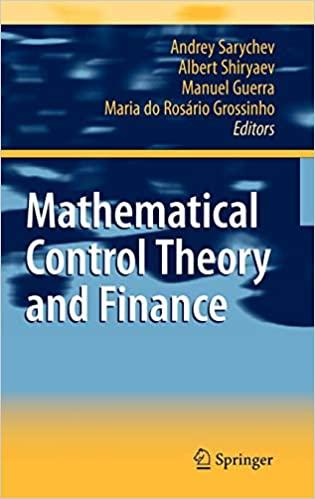Question
Question (3 Points) The current price of a stock is $94, and 3-month European call options with a strike price of $95 currently sell for
Question (3 Points)
The current price of a stock is $94, and 3-month European call options with a strike price of $95 currently sell for $4.70. An investor who feels that price of the stock will increase is trying to decide between buying 100 shares and buying 2,000 call options (=20 contracts). Both strategies involve an investment of $9,400. What advice would you give? How high the stock price has to rise for option strategy to be more profitable?
Question (3 Points)
Three European put options on a stock have the same expiration date and strike prices of $55, $60, and $65. The premiums of the put options are $3, $5, and $8, respectively. (Ignore time value of money)
a) Explain how a written (short) butterfly spread can be created.
b) Construct a table showing the payoff / profit from each option in short butterfly spread.
c) Draw the profit diagram for the short butterfly spread and show the maximum profit, maximum loss and break-even prices on the graph.
d) For what ranges of stock prices would the short butterfly spread position lead to a loss?
Question (5 Points)
Telco installs telecommunications equipment uses copper wire from a company called Wirco as an input. Wirco sells copper wire for the price of copper plus $5. For planning purposes, Telco assigns fixed revenue of $6.20 for each unit of wire it uses.
The 1-year continuously compounded interest rate is 6%. In your answers, at a minimum consider copper prices in 1 year of $0.80, $0.90, $1.00, $1.10, and $1.20.
One-year option prices for copper are shown in the table below.
Strike 0.95 1.00
Call
$0.0649 $ 0.0376
Put
$0.0178 $0.0376
a) Compute the estimated profit in 1 year if Telco sells a put option with strike of $0.95. Draw the profit diagram.
b) Compute the estimated profit in 1 year if Telco sells collars with the following strikes: $0.95 for the put and $1.00 for the call option. Draw the profit diagram.
Question (5 Points)
A stock is expected to pay a dividend of $1.50 per share in 3 months and a dividend of $1 per share in 5 months. The stock price is $70, and the risk-free rate is 5 % per annum with continuous compounding for all maturities. An investor has just taken a long position in a 6-month forward contract on this stock.
a) Whataretheforwardpriceandtheinitialvalueoftheforwardcontract?
b) Three months later, the price of the stock is $65 and the risk-free rate of interest is still 5 % per annum. What are the forward price and the value of the long position in the forward contract?
Question (4 Points)
Suppose the stock index spot price is 1800 and the continuous dividend yield on the index is 2%. Assume that it is possible to lend at 4 % and borrow at 7 %, continuously compounded.
a) Above what futures price is there arbitrage?
b) Below what futures price is there arbitrage?
Please also show the cash flows, which make each type of arbitrage and explain in words what you would do at each relevant date. Consider time to maturity of 6 months
Step by Step Solution
There are 3 Steps involved in it
Step: 1

Get Instant Access to Expert-Tailored Solutions
See step-by-step solutions with expert insights and AI powered tools for academic success
Step: 2

Step: 3

Ace Your Homework with AI
Get the answers you need in no time with our AI-driven, step-by-step assistance
Get Started


